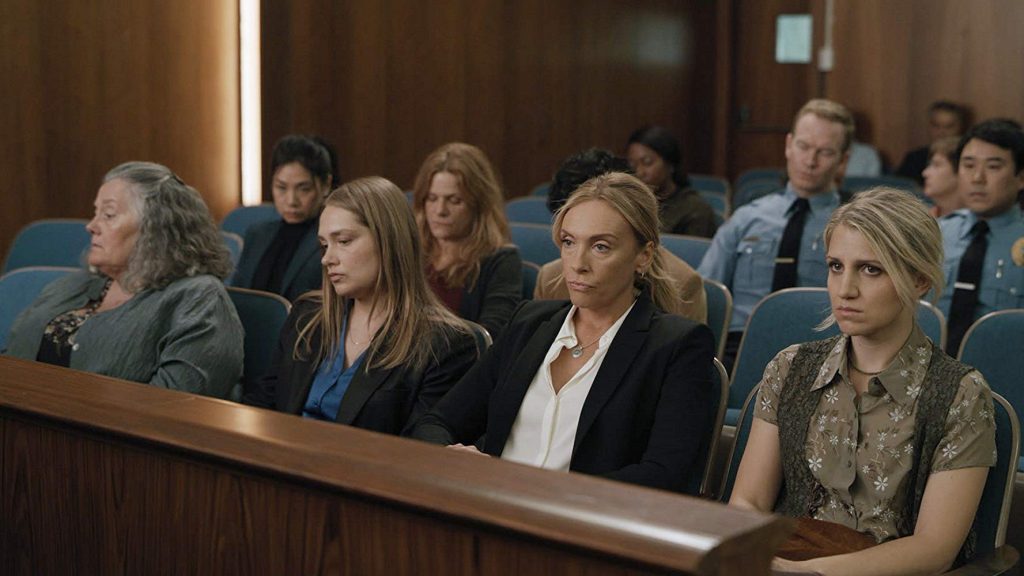Unbelievable is a new show on Netflix based on a Pulitzer winning true story from US investigative site ProPublica. The story is about a young woman from Lynnwood, Washington, who initially claimed to have been tied up and raped at her own home but later retracted her report.
Neither the trailer nor the first episode does justice to the story that unravels as the series proceeds. What may start out as the story of one particular victim of rape soon leads the viewers to a serial rapist. The story however is not told from the rapist’s point of view.
Male detectives Vs Female detectives
The series kicks off with Marie Adler (Kaitlyn Dever) filing a complaint to the police, providing details of her rape case. The male detectives practically compel Marie to withdraw her complaint through their hostile questioning. Marie’s confusion and frustration are palpable enough to the audience. Dever fits into the role like a glove with her innocent almost childlike face. The other characters deliver some impactful performances as well.The excellently executed first episode ends with a tone of hopelessness but also creates curiosity.

The second episode is where the viewer begins to grasp the real nature of the series. The questioning of another rape case victim, a few years after that of Marie’s by Detective Karen Duvall (Merritt Wever), shows a stark difference in the questioning process of male detectives as opposed to female detectives. Female detectives know better than to try and sweep cases of rape under the rug. Detective Grace Rasmussen (Toni Collette) is eventually introduced in the series thereby providing the audience with a much-needed female buddy cop team up. Both the newly introduced female detectives work at states away from Lynwood.
The essence of the series lies in its tendency to remain raw and real. The dialogues, conversations, settings and even the clothing are grounded and unassuming. The duo of detectives finds several victims who have been raped in a manner similar to that of Marie. The rapist follows the victims and learns their patterns well enough before he breaks into their homes. After breaking in he ties them up and makes sure they are awake while he rapes them. The rapist is however sly enough to not often leave behind evidence.
Victim or attention seeker?
Apart from acknowledging the other victims throughout the season, Marie’s life as an alleged attention seeker is touched upon along with her past. The people who should have trusted her judgement begin to question her intentions once she becomes unable to provide evidence of rape; her memory fails her too. The instance where Marie’s foster father refuses to be in the same house as her without supervision, following her unsubstantiated report, is heartbreaking to say the least. The peers around her slowly begin to pull her down as well. The series shines light upon several subject matters that ensue a rape case. For instance, the reaction of the victim or how it ‘should be’ is organically shown. The repercussions faced by a person filing a false report are shown as well.
The series also deals with the personal lives of the detectives. The mandatory good cop bad cop camaraderie is present. The male detectives are not able to fully fathom how crucial it is to urgently handle a rape case. It could be said that men don’t really relate with the implications of rape unless they are the ones accused. Even then the need to negate accusations does not justify the brash treatment towards a broken victim. Despite being aware of Marie’s unstable history, the male detectives in the first episode do not go easy on her which is proof of their distrust of Marie.
The series refrains from following the actual timeline of the happenings. Whatever the intentions of the show makers were regarding this, the first few episodes may seem rather confusing. Needless to say, mention of the actual dates could have made the series more engaging. The series is engrossing enough to be binge-watched. The series can easily be added to the list of bests in the buddy cop genre.